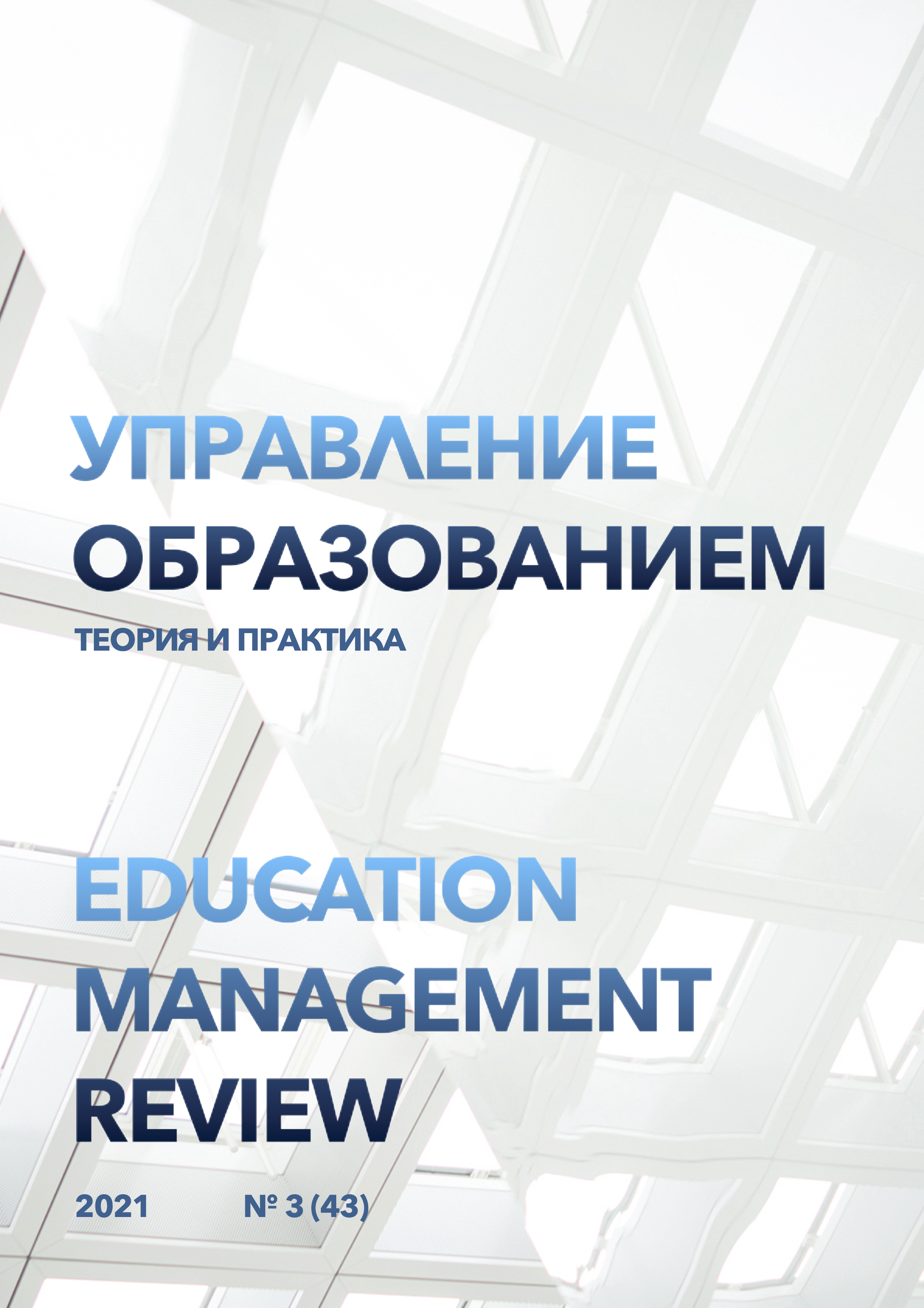Реализация «экологического императива» в рамках воспитательной работы в вузе
DOI:
https://doi.org/10.25726/k9572-2580-2592-tКлючевые слова:
экологическое воспитание, экологическая культура, нpaвственно-экологические нopмы, экологическое сознание, профессиональная подготовка, вуз.Аннотация
Стремительное разрушение экологии в XXI веке стало одной из наиболее опасных тенденций, обсуждаемых на уровне мирового сообщества. Изменение климата и вызванные этим фактором наводнения, засухи и иные природные катаклизмы, истощение почв, дефицит воды, угроза голода – всё это говорит о том, что естественная среда обитания человека стремительно разрушается. Неблагоприятные условия, связанные с деформацией естественной эко-системы, загрязнением природной среды и истощением ресурсов, становятся фактором выживания человека и осложняют условия его жизнедеятельности. Статья посвящена проблеме экологического воспитания студентов вуза как неотъемлемой составляющей их профессиональной подготовки. Представлены результаты шестилетней работы автора по экологическому воспитанию в рамках проекта «Зелёный университет», реализуемого в Московском гуманитарном университете. Показаны дидактические принципы этой работы - социальности, научности, субъектности, диалогичности, проблемности, единства существования, познания, действия, обязательности, комплексности, равнозначности, - отражаемые в соответствующем содержании и организационных формах; определены методологические основания данной работы, изложенные в педагогических концепциях, теориях и подходах; выделены и содержательно представлены ее уровни - организационный, образовательный, воспитательный, социальный, научный, просветительский; показано влияние на экологическое воспитание эколого-ориентированной образовательной среды вуза, выделены ее элементы: научно-педагогические традиции вуза, его профессорско-преподавательский состав, инфраструктура.
Библиографические ссылки
Ainley, J., and Schulz, W. (2011). Expected participation in protest activities among lower secondary students in 38 countries. In Annual Meetings of the American Educational Research Association in New Orleans, 8–12 April 2011. Retrieved from https://iccs.acer.org/files/AERA-ICCS-Protest-Activities(NewOrleans2011).pdf
André, S., Dronkers, J., and Need, A. (2014). To vote or not to vote? A macro perspective: electoral participation by immigrants from different countries of origin in 24 European countries of destination. Research on Finnish Society, 7, 7– 20.
Caro, D. H., and Schulz, W. (2012). Ten hypotheses about tolerance toward minorities among Latin American adolescents. Citizenship, Social and Economics Education, 11(3), 213. https://doi.org/10.2304/csee.2012.11.3.213
De Groof, S., Elchardus, M., Franck, E., and Kavadias, D. (2008). The influence of civic knowledge versus democratic school experiences on ethnic tolerance of adolescents: a multilevel analysis. Retrieved from http://www.iea.nl/sites/default/files/irc/IRC2008_DeGroof_Elchardus_etal.pdf
Diazgranados, S., and Sandoval-Hernández, A. (2015). Young people’s attitudes toward equal rights for ethnic/racial minorities and immigrants: the effect of contact and supportive school environments in the European Union. In M. M. Isaac (ed.), Tolerance through education: mapping the determinants of young people’s attitudes towards equal rights for immigrants and ethnic/racial minorities in Europe. pp. 74-110 Luxembourg: Publications Office of the European Union.
Eckstein, K., Noack, P., and Gniewosz, B. (2013). Predictors of intentions to participate in politics and actual political behaviors in young adulthood. International Journal of Behavioral Development, 37(5), 428–435. https://doi.org/10.1177/0165025413486419
Eidhof, B. B., ten Dam, G. T., Dijkstra, A. B., and van de Werfhorst, H. G. (2016). Consensus and contested citizenship education goals in Western Europe. Education, Citizenship and Social Justice, 11(2), 114–129.
Galston, W. A. (2001). Political knowledge, political engagement, and civic education. Annual Review of Political Science, 4(1), 217–234.
Hooghe, M., and Dassonneville, R. (2011). The effects of civic education on political knowledge: a two year panel survey among Belgian adolescents. Educational Assessment, Evaluation and Accountability, 23(4), 321–339. https://doi.org/10.1007/s11092-011-9131-5
Hoskins, B., Saisana, M., and Villalba, C. M. H. (2015). Civic competence of youth in Europe: measuring cross national variation through the creation of a composite indicator. Social Indicators Research, 123(2), 431–457. https://doi.org/10.1007/s11205-014-0746-z
Isac, M. M., Maslowski, R., and van der Werf, G. (2011). Effective civic education: an educational effectiveness model for explaining students’ civic knowledge. School
Keating, A., and Benton, T. (2013). Creating cohesive citizens in England? Exploring the role of diversity, deprivation and democratic climate at school. Education, Citizenship and Social Justice, 8(2), 165–184. https://doi.org/10.1177/1746197913483682
Prokic, T., and Dronkers, J. (2010). The differences in attitudes about their society between 14 year old pupils with and without an immigration background: a crossnational comparison. MPRA Paper No. 21637, Maastricht. Retrieved from https://mpra.ub.uni-muenchen.de/21637/
Quintelier, E. (2010). The effect of schools on political participation: a multilevel logistic analysis. Research Papers in Education, 25(2), 137–154. https://doi.org/10.1080/02671520802524810
Petrova, E.A.: Education of patriotism and civic position in the collectives of junior schoolchildren. In: Pedagogical Culture «Schools of Practical Humanism», pp. 217-230. Moscow (2008).




